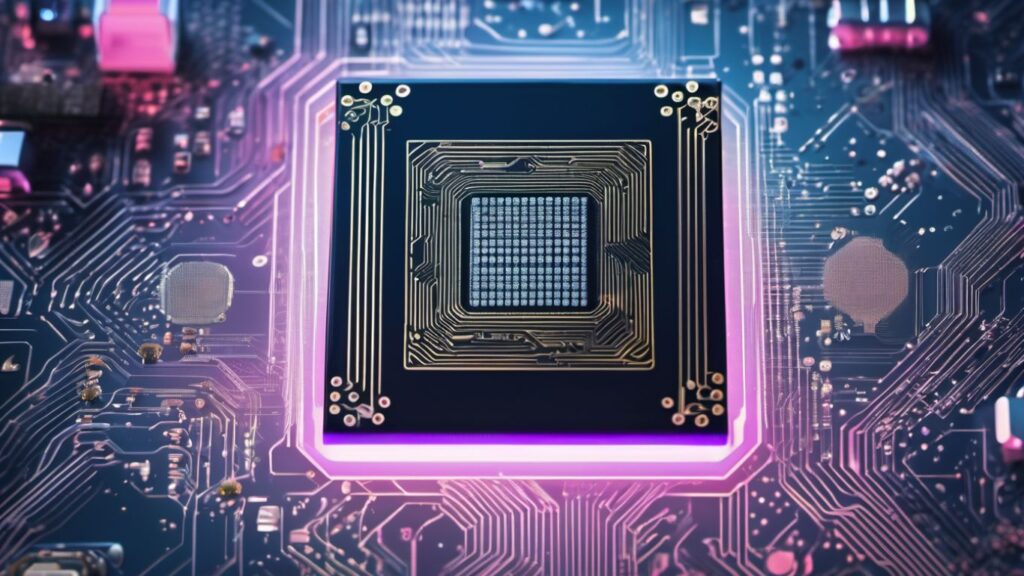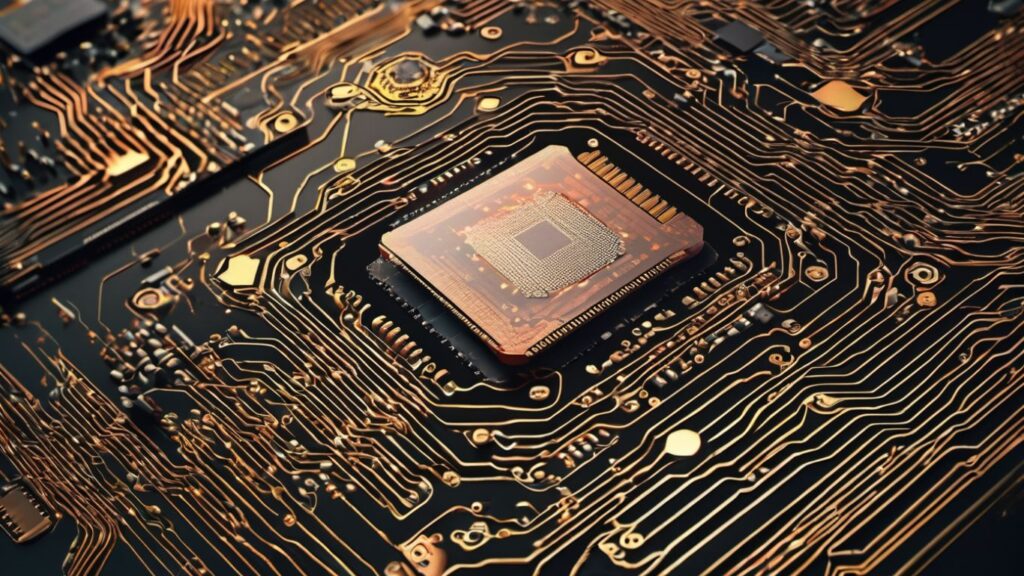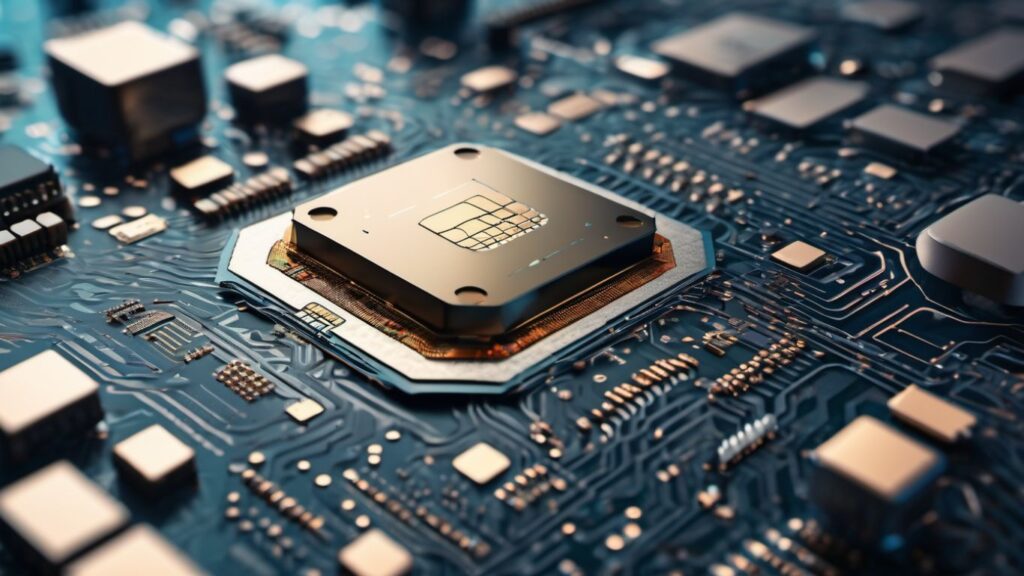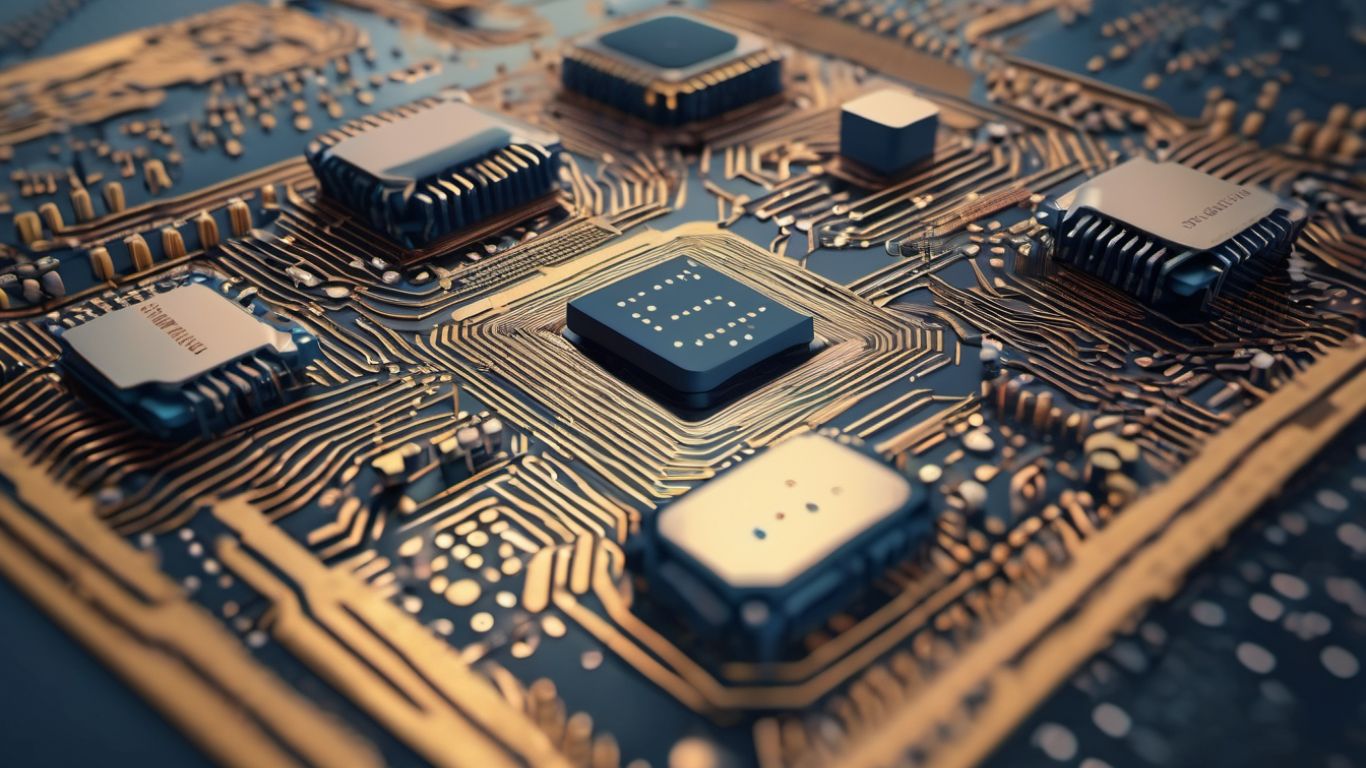As AI technology evolves, so does the demand for robust, efficient, and specialized hardware. AI chips, designed to accelerate complex AI tasks, from training deep learning models to performing real-time inference, are at the heart of this revolution. Let’s explore some of the leading companies in AI chip manufacturing, their recent developments, and market trends shaping the future of AI hardware.
Major Players in AI Chip Manufacturing
NVIDIA

NVIDIA has long been a pioneer in GPU-based AI acceleration. Their GPUs are known for high performance and scalability, making them ideal for complex AI workloads. Recent innovations include the A100 Tensor Core GPU, which sets new benchmarks for AI performance with advanced features like multi-instance GPU technology. NVIDIA’s developer tools and frameworks, such as CUDA, further enhance its ecosystem, making it the platform of choice for many AI applications.
Intel
Intel offers a diversified portfolio that includes both CPUs and specialized AI accelerators. Their 3rd Gen Intel Xeon Scalable processors have built-in AI acceleration, simplifying AI implementation across industries. Intel focuses on security and advanced data handling, making its solutions suitable for sensitive sectors like healthcare and finance. Their integrated AI acceleration in Xeon processors combines general-purpose computing power with specialized AI capabilities.
AMD
AMD leverages its high-performance computing capabilities to enhance AI training performance. Collaborating with IBM, they use IBM Power Systems to push the boundaries of AI training. AMD’s commitment to open-source initiatives fosters innovation and provides diverse AI hardware solutions. Their competitive pricing and performance make them a compelling choice for building AI infrastructure.
Google develops custom-designed TPUs (Tensor Processing Units) optimized for AI tasks. TPUs are integrated into the Google Cloud Platform, offering businesses and developers accessible AI acceleration. Known for their energy efficiency, TPUs deliver high performance with lower power consumption, supporting sustainable AI infrastructure. Google’s focus on AI innovations ensures its leadership in this space.
Apple
Apple integrates AI acceleration directly into consumer devices, enhancing user experiences with on-device AI processing. Their M1 chip is a breakthrough in AI acceleration, offering significant performance improvements. Apple emphasizes privacy and data security, aligning with consumer demands for secure AI applications. Their vertical hardware and software integration enables optimization for AI workflows specific to Apple devices.
Key Features of AI Chips

- Performance and Scalability: High-performance capabilities to handle complex AI tasks and scalability to support large-scale AI deployments.
- Energy Efficiency: The design reduces power consumption while maintaining high performance.
- Specialization: Custom hardware solutions tailored to specific AI applications, such as TPUs for deep learning.
- Security: Enhanced data handling and security features are crucial for sensitive industry applications.
- Ecosystem Support: Strong support with development tools, frameworks, and cloud integration to facilitate AI development and deployment.
Comparison Between Different AI Chip Manufacturers
- NVIDIA stands out for its advanced GPU architecture and strong ecosystem support, making it a leader in AI acceleration.
- Intel excels in integrating AI acceleration into general-purpose CPUs, providing versatile solutions for various industries.
- AMD offers competitive performance and pricing, focusing on high-performance computing and collaborative innovation.
- Google leads in custom AI hardware with TPUs optimized for performance and energy efficiency.
- Apple focuses on integrating AI within consumer devices, emphasizing performance, privacy, and seamless hardware-software synergy.
Emerging Trends in the AI Chip Industry
- Increased Demand: A growing need for AI chips across different industries drives intense competition among manufacturers.
- Energy Efficiency: Development of more power-efficient AI chips to meet the demands of sustainable AI infrastructure.
- Specialized Hardware: There is a rising focus on specialized AI hardware like ASICs (Application-Specific Integrated Circuits) and TPUs.
- Architectural Innovation: Continuous advancements in AI chip architecture to support more advanced AI tasks.
- Cloud Integration: Collaboration between AI chip makers and cloud service providers to optimize AI hardware solutions.
Impact of AI Chips on Various Sectors
AI chips are transforming industries by enabling faster, more efficient processing of AI tasks. In healthcare, they help analyze medical data and accelerate research. In finance, they enhance fraud detection and risk management. In retail, they improve customer experience through personalized recommendations. Across all sectors, AI chips drive innovation, improve operational efficiency, and provide a competitive edge.
FAQs
What are AI chips?
AI chips, also known as AI accelerators or processors, are specialized hardware designed to accelerate artificial intelligence tasks such as machine learning, neural network processing, and deep learning. They are optimized to handle complex computations more efficiently than traditional CPUs.

Why are AI chips necessary?
AI chips are crucial because they enable faster processing of large datasets, essential for training and deploying AI models. They improve computational efficiency, reduce energy consumption, and allow real-time AI applications vital for industries like healthcare, finance, and autonomous driving.
How do AI chips differ from traditional CPUs and GPUs?
Traditional CPUs are general-purpose processors designed for various computational tasks, while GPUs are specialized for parallel processing, which is helpful for graphics and certain types of AI workloads. On the other hand, AI chips are explicitly tailored for AI tasks, offering superior performance and efficiency for deep learning and neural network computations.
What industries benefit the most from AI chips?
AI chips have a wide range of applications across various industries. In healthcare, they assist in medical diagnostics and research. In finance, they enhance data analysis and fraud detection. In retail, they improve customer personalization and inventory management. Other sectors, such as automotive, cybersecurity, and manufacturing, also significantly benefit from AI chip technology.
What factors should be considered when choosing an AI chip?
When selecting an AI chip, essential factors include performance, energy efficiency, scalability, security features, and ecosystem support. The application’s specific needs, such as the complexity of AI tasks and the required processing speed, also play a critical role in determining the best AI chip.
Are AI chips integrated with cloud platforms?
Many AI chips are integrated with cloud platforms to provide scalable and accessible AI solutions. For instance, Google’s TPUs are available through Google Cloud, allowing businesses to leverage high-performance AI hardware without investing in physical infrastructure. This integration facilitates seamless deployment and scaling of AI applications.
Conclusion The Future of AI Chip Development
The future of AI chip development looks promising, with continuous innovation and advancements on the horizon. The demand for robust, efficient, and specialized AI chips will only grow as AI technology becomes more integrated into our daily lives. By staying at the forefront of technological advancements, companies like NVIDIA, Intel, AMD, Google, and Apple are shaping the future of AI and its applications.
Ready to see the impact of AI on your business? Discover how AI chips can transform your operations and give you a competitive edge.











